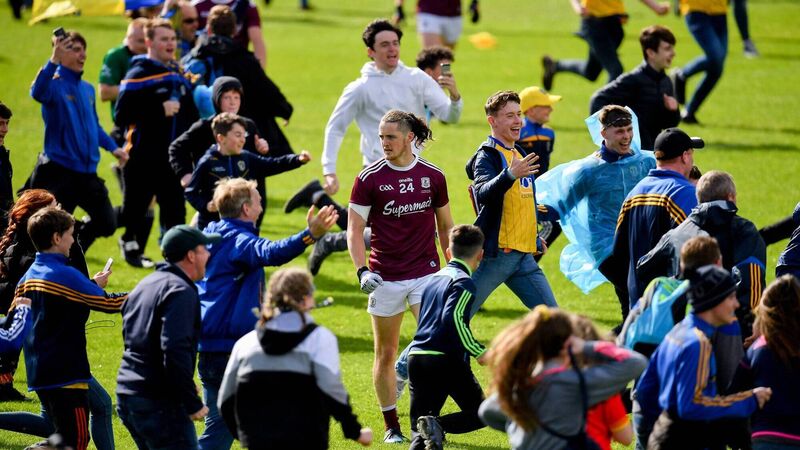Jack Anderson: We have waited 135 years for change, we can surely wait another 135 days

Kieran Molloy of Galway at the final whistle as Roscommon supporters rush past him during the Connacht GAA Football Senior Championship final in 2019.
The idea that the yearly champions of a sport should emerge from a competitive, tiered league system was last considered radical in the late 19th century. And yet on Saturday, that very idea will be central to a GAA special congress on the future of its most important competition — the men’s All-Ireland football championship










